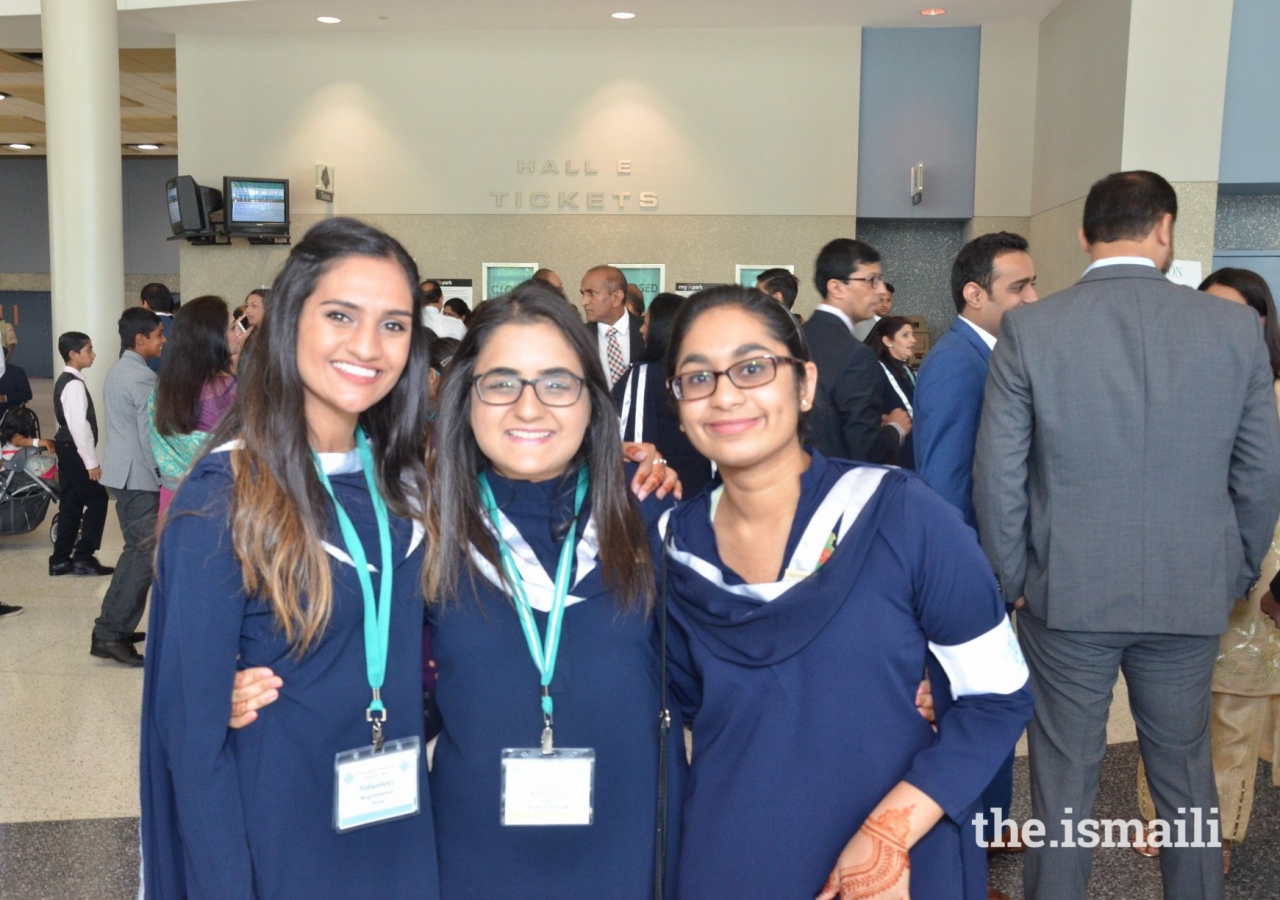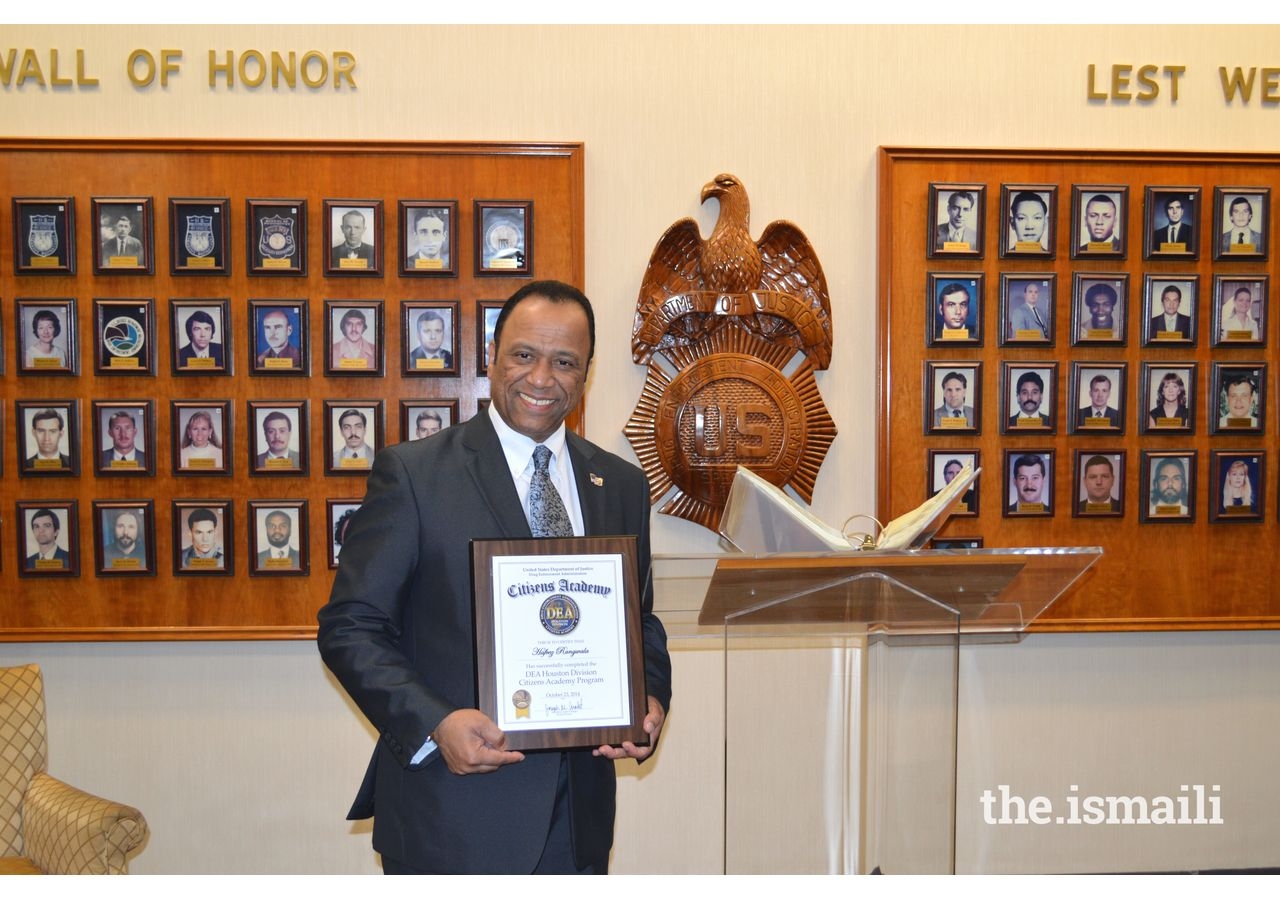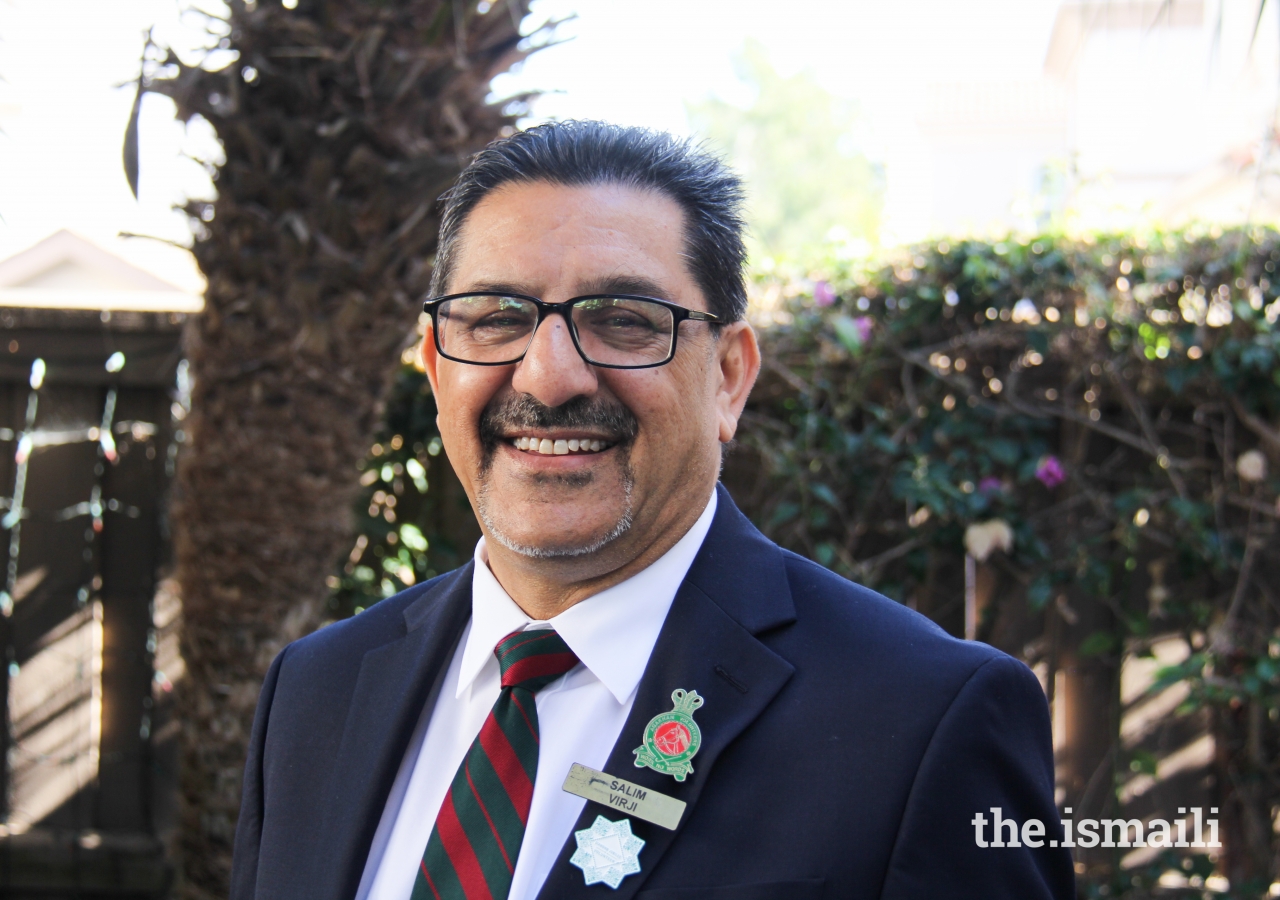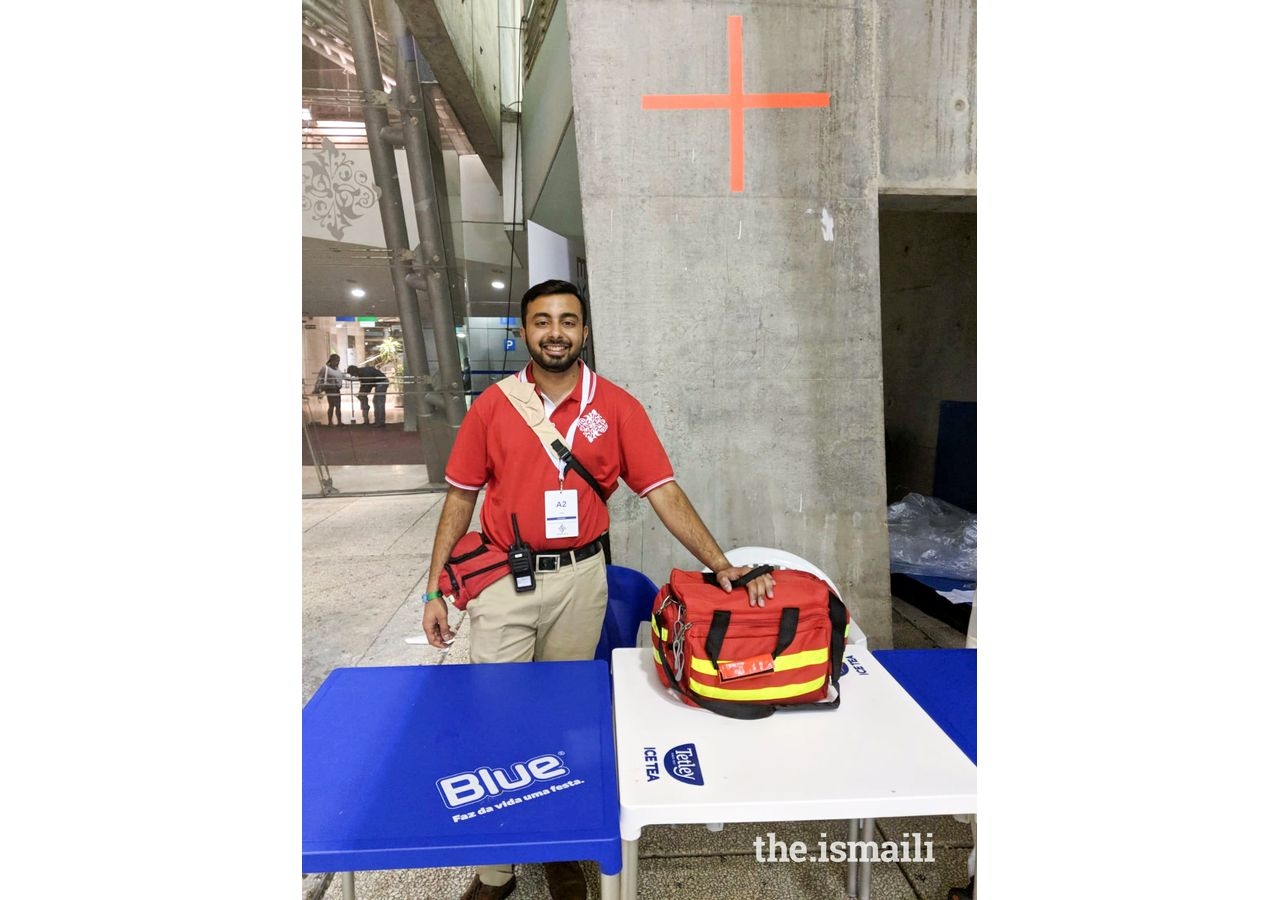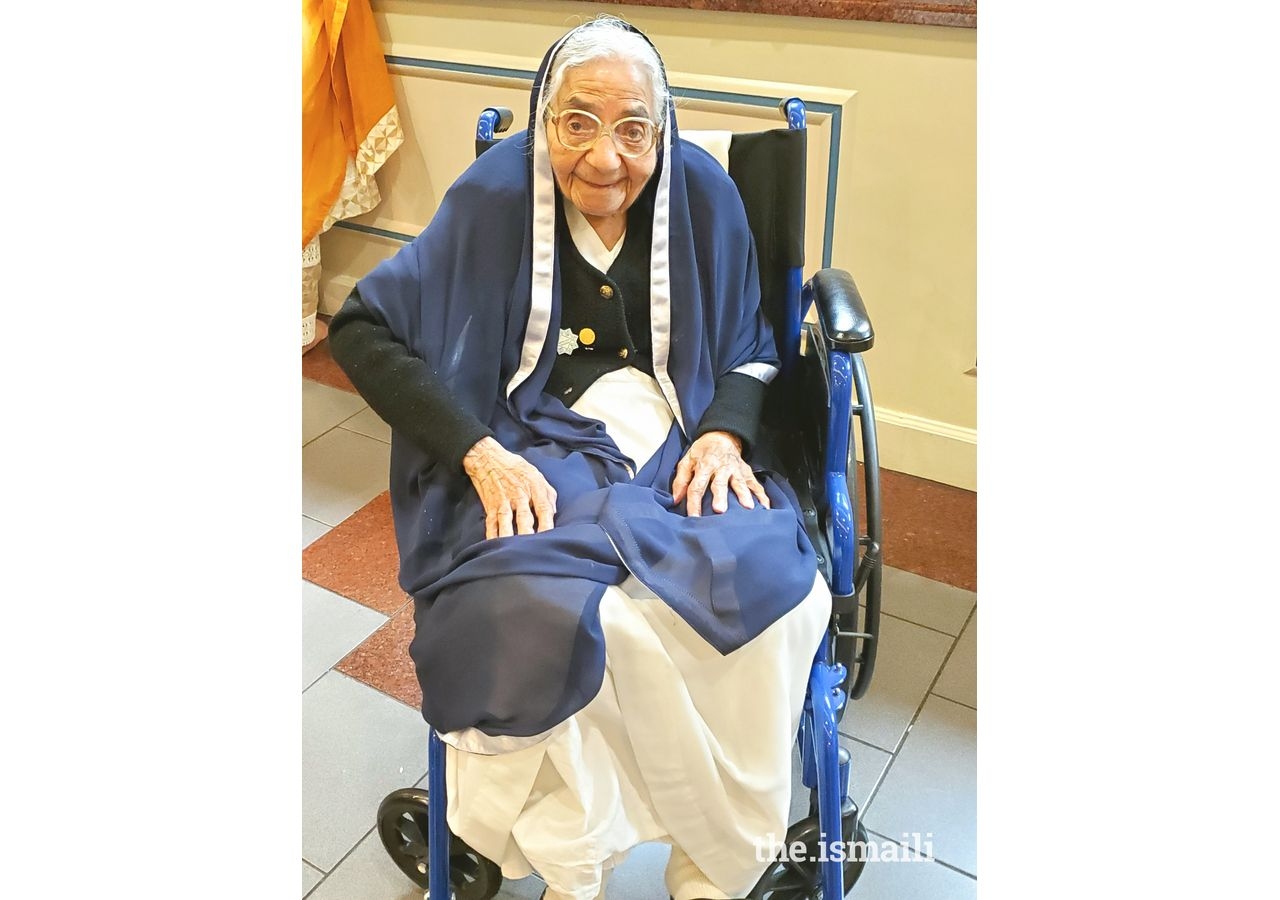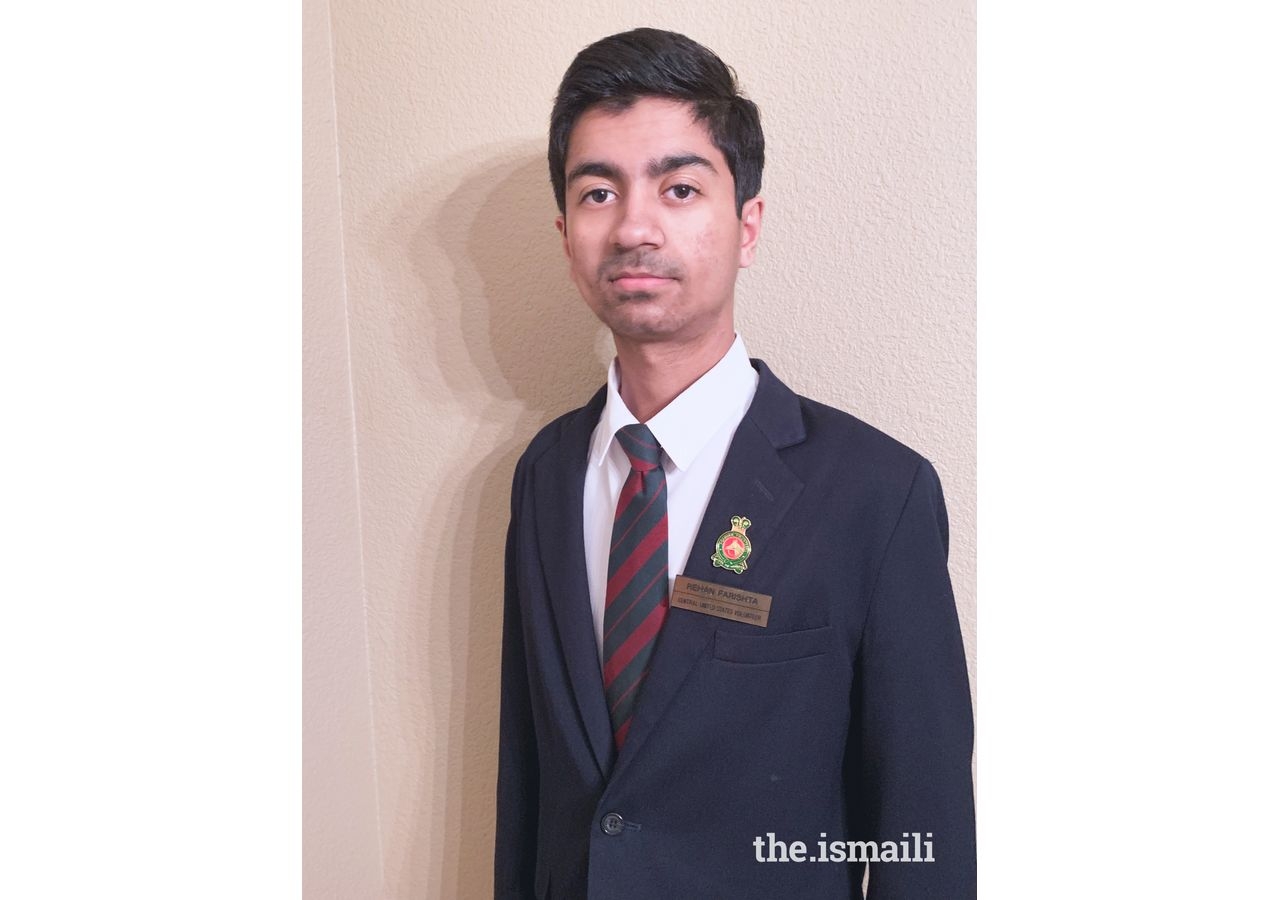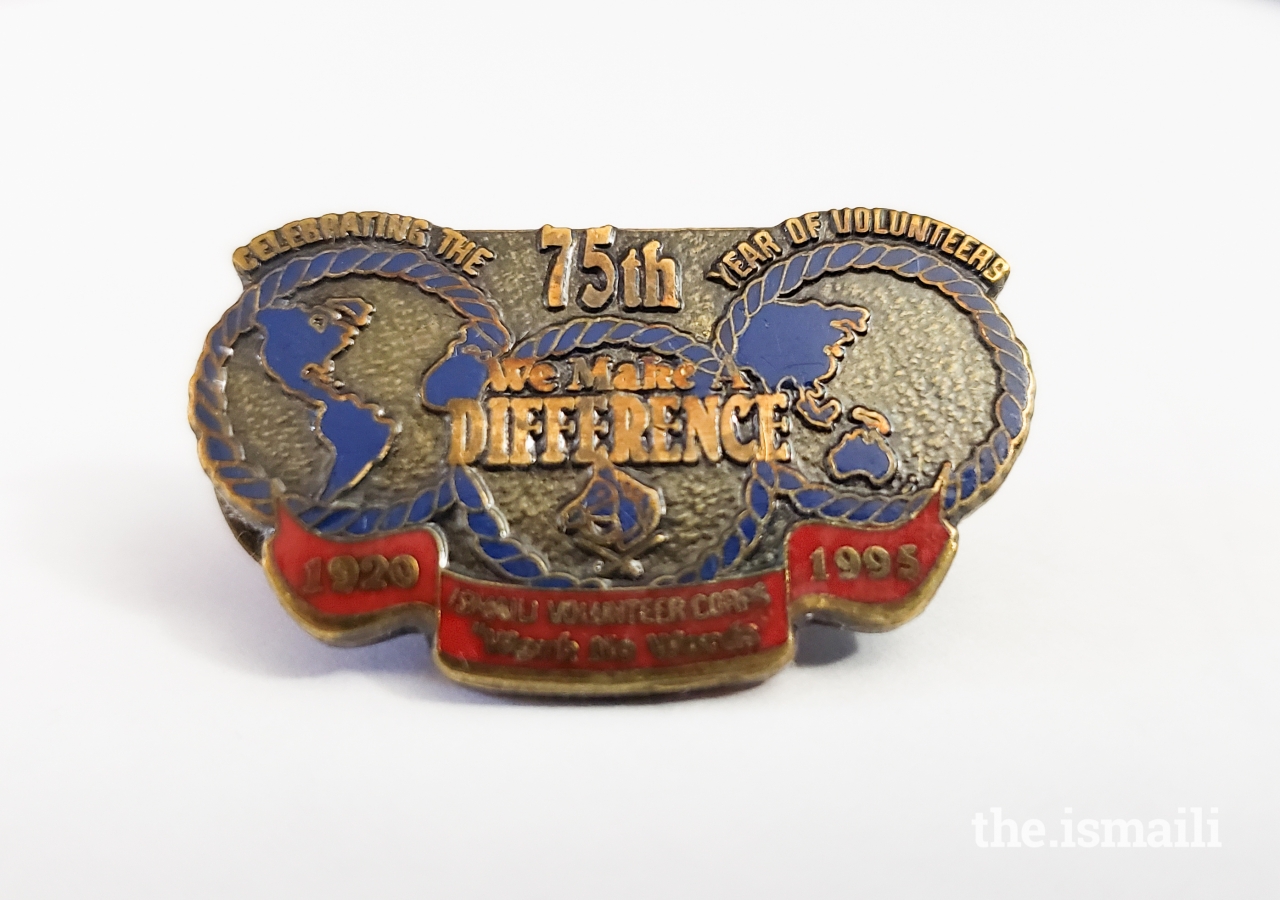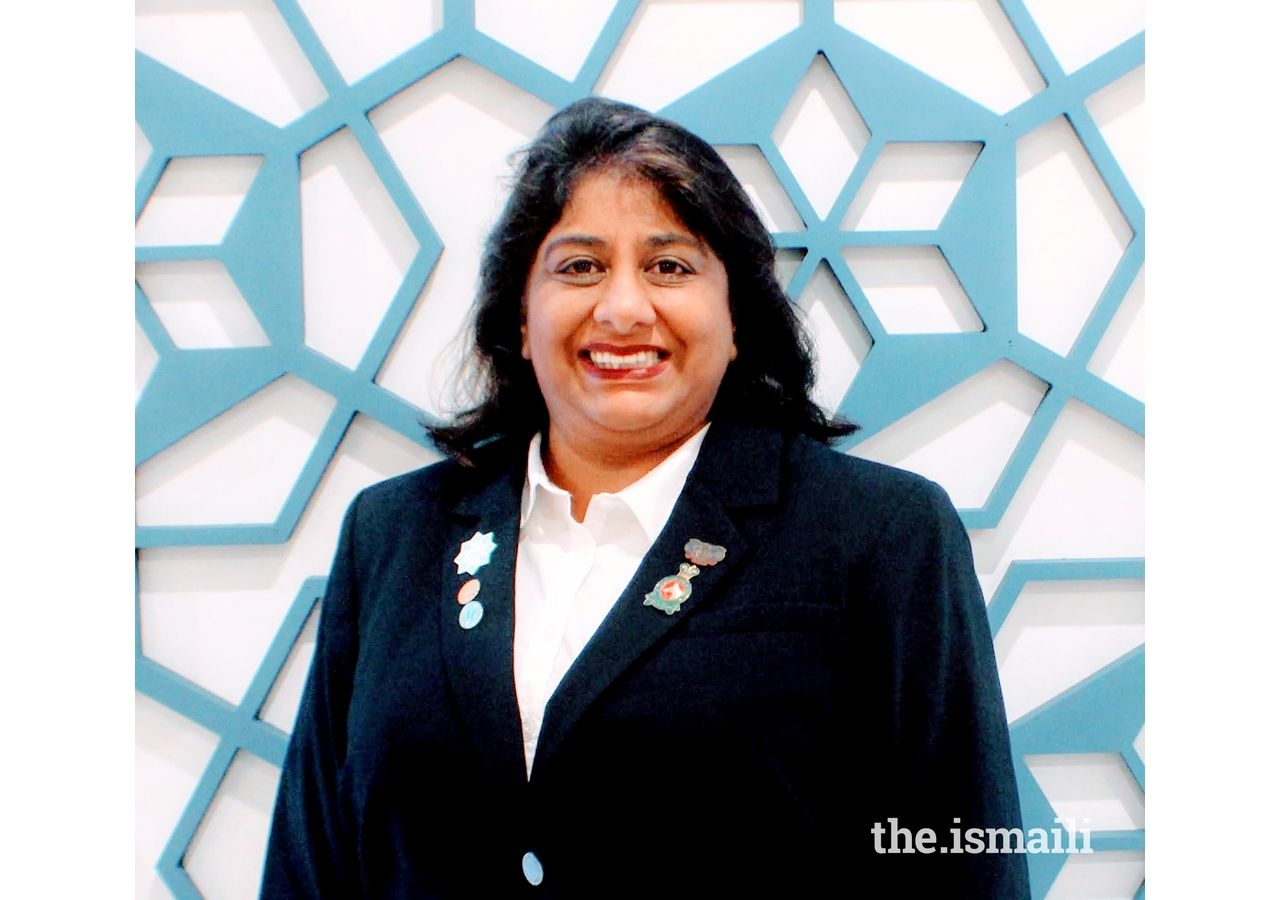In celebration of the IVC’s 100th celebration this year, we are highlighting individuals for a glimpse of their journey down the memory lane of service, and as a small representation of the USA IVC. With different paths to their journeys, these volunteers tell a tale of happiness and humility.
Recalling the beginning of their voluntary service
Before coming to Chicago with his family in the 1970s, Ramzan Ali Kapadia had left a legacy in Bangladesh, where at the young age of 17, he had recognized that children did not have books, shoes, or a basic understanding of the Bengali language or English. He began the Ismaili Youth Services Bangladesh in the 1960s to help fulfill some of these needs, and also helped to establish English classes and savings programs for youth.
By 1974, the Jamat in Chicago had grown from about 14 people to more than 100, and Ramzan worked with other sevadaris to create the IVC there to assist members with Jamatkhana activities and to manage the facility. In 1979, a new building was purchased for a Jamatkhana and Ramzan says, “The volunteers became the backbone as we had to remodel the building, including painting, plastering, woodwork, lighting, and so on. That brought in the real volunteer camaraderie.”
At 105 years of age, Fatima Jamani, lovingly called Maaji by all, is a familiar sight to all in Atlanta, where she sits on a chair in her volunteer uniform, still on duty. Born in India in 1914, during the First World War, she remembers her call to service as a light that has sustained her until this day. Enduring the loss of her four-month-old son at an early age and losing her husband by the age of 44, she was left to care for her nine-year-old daughter. With no consideration for the prospect of remarriage, she raised her husband’s siblings, managed the household, and still found time to dedicate her time for teaching in the Religious Education Center. She has been a volunteer continuously since 1949.
Maaji’s most special memory is a bond she made with her Imam during his Takht Nashini in 1957 in Bombay. During mehmani, she felt an urge to present the Imam with a token of her love, and tried to fit her ring onto his fingers, but it was too small. Discouraged, she turned to leave, only to be stopped by the Imam and hugged by him. The moment of joy and solace was a seal to confirm he had accepted her seva for her niyat. Her secret to longevity? “I don’t gossip,” she replies with a smile.
Service during the Jubilees
Hafeez Rangwala, aged 58, began his service within the Volunteer Corps in 1972 at the age of 11 as a Cub Scout in India. With 47 years in service to the Jamat, he has been a trainer and lead in Safety and Security, Crisis and Disaster Management, and currently is the manager for Uniform Volunteer Training.
Through service, Hafeez has developed self-confidence, inner strength, and self-esteem, enabling him to live a happier and fulfilled life. For Hafeez, “serving others is the finest attribute of human character, being a volunteer and getting opportunities to serve the Jamat, the institutions, and above all, to serve Imam-e-Zaman is the best reward of life.” During his years of service, he has served during the 2002 Houston Mulaqat, and all the subsequent Jubilees. His wife is a non-uniformed volunteer and his daughter served with him during the Jubilees.
Hafeez’s fondest memories are of occasions when he has served members in their times of difficulty, and seen the gratitude in their eyes. He has served as a volunteer in leadership positions such as President of the FBI National Citizens Academy Alumni Association, Houston, as Chairman of its Strategic Planning group, and with the Citizens Community Outreach with the Department of Drug Enforcement Agency. He has served as a volunteer for 10 years as a Police Officer with the New York Police Department’s Auxiliary Forces, and as a trained volunteer firefighter with Sugar Land Fire Department.
Serving the Los Angeles Jamat since 1981, Salim Virji became the first Major of the Volunteer Corps in a pilot program and was addressed as such by the Imam during the Silver Jubilee. Salim served as a member of the Western Council, and today, he can still be seen in uniform at all major events as the Jamati Food Coordinator. “Volunteerism helps me build new skills and counteract the effects of stress and anxiety,” he says, adding, “Helping and working with every segment of our Jamat gives me personal satisfaction and a sense of pride and identity. It is my wish and desire that I could serve the Jamat and the Imam with dedication and devotion till my last breath.”
Becoming a volunteer in 1982 in New York, Karima Rajan recalls the adrenaline rush she felt during the Imam’s Silver Jubilee visit. She says engaging with other volunteers “sparked such a fire in me. The night before Hazar Imam was due to arrive, we were so charged that we only slept for an hour or two, at most. We also had up to 10 enthusiastic, youth volunteers in one room. Who could sleep with all the energy?”
Karima became a Captain of the IVC and her proudest moment was being presented with the IVC 75th anniversary badge in 1994 and remembering her parent’s words: “If you are going to do seva, do it with your heart. Be humble.”
Youth continue the Tradition of Service
For Anam Sherali, aged 27, her journey began at the age of eight and has led to her serving as Regional Youth Administrator for Greater Houston. Being a recipient of mentorship herself, she today influences adolescent uniform volunteers who are embarking on their journey as a volunteer for the first time. Her favorite moment was when she received her own badge, following the footsteps of her mother, who had been serving as a volunteer for 19 years.
During the 2002 Mulaqat in Houston, Anam assisted in packing sandwiches and snacks for the Jamat. During the Golden Jubilee, she was part of Diamond Voyage as a guide. During the Diamond Jubilee, she participated in various aspects of the planning and execution process to enter Jamati member’s data at the Data Processing Center.
As a high school and college student, Anam has also volunteered at Memorial Hermann Hospital, representing on the Junior Volunteer Board for five years. Every year, on Thanksgiving Day, she serves the homeless or delivers meals to senior citizens. Through her volunteering, she has recognized that “faith and service are intertwined. I’m driven to serve because it makes me feel more connected to the community; it’s a way to express my faith beyond the rites and rituals that we observe in Jamatkhana on a daily basis.”
Jamati service has evolved in many ways over the years, especially in terms of structural changes. The youth mentorship initiative enrolls individuals at the age of eight and allows them to seek out positions of leadership within the volunteer infrastructure. Such is the example of Altamish Daredia, age 23, from Birmingham, Alabama, who has been a youth volunteer since 2002.
Currently, the Youth Facilitator, Altamish’s earliest memory of being a volunteer is when he was eight-years-old, and assigned the role of Cadet. During the 2018 Diamond Jubilee celebration, he was able to see the Jamat from around the world come together in service and in celebration. Eager to offer solutions to visible challenges, he noted that with hours of waiting in long queues, the Jamat might experience dehydration or be hungry. With a few other volunteers, he fetched water bottles and granola bars from the snack tables for the Jamat. In Lisbon, during the final Darbar, he assisted at the First Aid and healthcare stations.
By carrying on a family tradition of service, he hopes to inspire his fellow volunteers with the message, “we are all part of a tradition and an organization that has been in place for generations. We are following in the footsteps of so many volunteers that came before us. We each carry an amazing responsibility to our Imam and the Jamat.”
The eagerness of youth to serve was recognized and formalized in 1924, leading to opportunities for junior volunteers under the name of the Ismaili Scouts. In a community guided by the Imam’s passion for service, Rehan Farista, age 16, became an active Ismaili Youth Volunteer at the age of eight. He started his service by assisting the elderly in Jamatkhana. Through service, he derives immense happiness, saying that the word “volunteer symbolizes taking the time and effort to help others.”
The motto “Work No Words,” given by Mawlana Sultan Mahomed Shah in 1924 to the Volunteer Corps, will resonate as a symbol of service with humility. During Hazar Imam’s Golden Jubilee, the motto and duty were enhanced with training for “Service with a Smile.” The Jamat’s training and service has continued to evolve with the need to represent the pluralistic regions of our Jamat and is a tradition that will endure.

